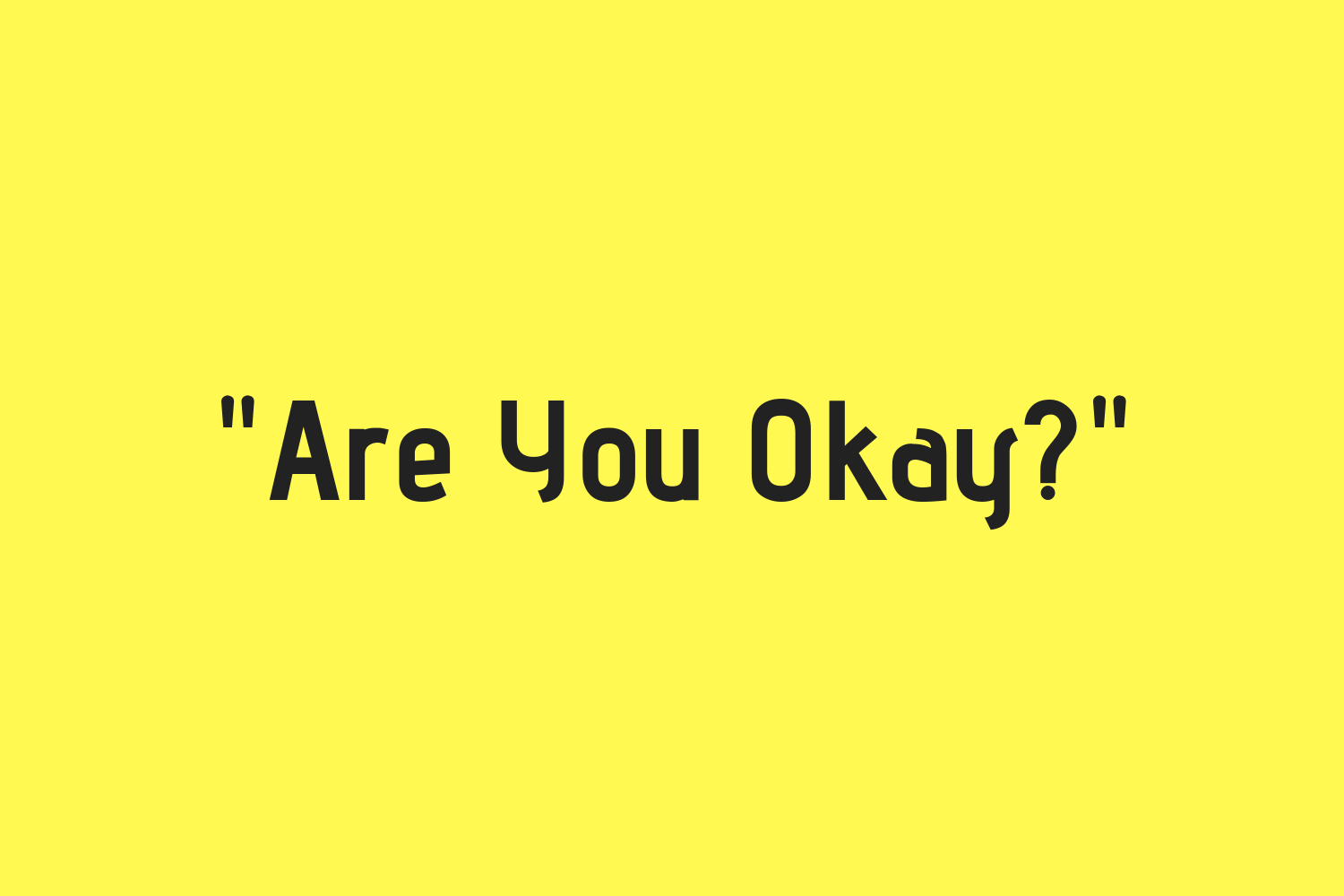Hello friends, so this isn’t going to be a super, lighthearted chat, but it’s an important one, so do your best to pay close attention… please, do it for those around you and maybe even for yourself.
Mental Health is…
Something that’s not spoken about often enough…
Something that has major stigma surrounding it…
Something many suffer with, but don’t feel like they can speak about…
It can be confusing at times having someone you’re close to suddenly change, almost without warning… but the thing we can be grateful for, is that there usually is a warning, in fact, there are many warning signs – it’s just a matter of being aware of them.
If you’re not aware of them then it makes it a little tougher to see the signs, acknowledge them and do something.
If you’re aware of the warning signs, then you can do something about it, you can be there for that person in their time of need.
This is going to be a detailed read – but it’s a detailed read with a purpose to share an important message. So, please be patient and if you need to, you can act on it.
Yes, you can’t see it. Yes, it can be ‘invisible’ to the people around those suffering. And, yes, it is still incredibly damaging, scarring, difficult, troubling, lonely, confusing and painful…
However, due to the fact that you can’t physically see it, you’re more often than not told to simply ‘get over it’ or that ‘it’s just a phase’ or to ‘stop being such a downer’ or your concerns are generally completely dismissed and ignored (if you think someone may have mental health issues, please refrain from saying these things, it’s hurtful and discouraging to hear these comments).
Simply because mental illness is something that’s ‘invisible’, it’s not talked about, it’s ignored, it’s dismissed, it’s made fun of, it’s swept under the carpet.
Mental health must be spoken about, it must be addressed for all individuals, regardless of age or gender.
Another thing to realise is that someone could seem perfectly okay one day – that they have their life together – and then, the next day, just fall apart at the seams, for no apparent reason. It can be overwhelming knowing what to do when faced with someone who is in emotional and psychological turmoil.
You can simply ask, “are you okay?”.
Those three little words can make all the difference.
If you notice a workmate, or a friend, or a family member has become a little distant, that they’re more quiet or withdrawn than they usually are, that they’re anxious, they’re having emotional outbursts or are showing a lack of motivation in things that usually make them so happy. Maybe they just don’t seem like themselves lately?
Please, ask them…
It could drastically change a life, the course of a life or a decision that person has made that day. It could be the first time someone has properly been interested in how they feel and it could be the push they needed to finally seek help.
Ask: are you okay?
Ask it, and ask it often.
We are human, not rocks.
We have emotions.
We have feelings.
We have troubles.
We all have to go through this thing called life…
Let’s make it as simple as possible for each other. Not harder. The world is already tough enough.
FACT:
1 in 5 Australians are suffering from mental health issues. ONE in FIVE.
So, a serious question (or questions, I should say):
Why is there such a stigma around it? Why are we not doing more to provide people with the comfort to share how they’re really feeling? Why do we feel that there is an inability to share how we are actually doing, not how people want to think we are doing?
1 in 5 are suffering, let’s change that.
Warning signs to look for:
REMEMBER: please remember, this is REGARDLESS of age or gender, okay?
Being quiet or withdrawn.
Let’s address two things here: extrovert and introvert.
Someone could be incredibly extroverted and usually very loud, happy, always doing things, out and about on a constant basis and if they are suddenly withdrawing from the things that they usually do; maybe that’s an indication to ask them how they are going.
Someone could also be incredibly introverted, naturally quiet and withdrawn and sometimes that makes it extra difficult to distinguish between that individual doing what they normally do and acting as they usually do and that individual not being okay and actually needing a friend.
Always keep an eye out, if they are acting different, talk to them and take the opportunity to reach out, even if they are okay, simply asking could make all the difference.
Anxiousness / Worry
We can all be super anxious, stressed, and worried at times, especially in today’s world, it’s practically a given.
BUT, when it becomes a constant feeling and it begins to interfere with your everyday life, with your job, your relationships etc, it can be rather daunting.
If you notice that in someone, check up on them, talk to them and ask how they are doing, do they know why they’re feeling this way? Engage in conversation with them (as much as they allow, don’t push it).
Feeling down, depressed, unhappy
Look out for signs of loss of motivation, interest or energy in your friend/ family member/ co-worker.
If you notice this, then ask if they are okay, how they are feeling and if there is anything you can do to help.
Emotional outbursts
Okay, let’s face it we all have that little devil that pops out every now and again to say hello.
But if it’s suddenly on a consistent basis, check up on your friend and see how they are going and if they are aware that they are acting out in a different manner than they usually do.
Sleeping Changes (increased or decreased sleep)
If you have noticed someone has had changes in their sleeping pattern, whether this is increased or decreased sleep, check up on them and ask if they’re okay and if they know why they’ve been sleeping more or less than usual.
Appetite Changes / Weight Fluctuations
This can be a big one, and one that can be especially noticeable when it’s a close friend or family member.
Regardless if this is an increased or decreased appetite, this will be noticeable by the amount that they are eating on a consistent basis and if they have had a noticeable weight fluctuation.
If you notice this, keep an eye on them for a little while and if it doesn’t go back to what is ‘normal’ for them, approach them and ask if they’re okay.
Substance Abuse
Using substances such as alcohol and drugs can be an indication that your friend, family or co-worker aren’t doing so well.
They may be using the substances to numb the pain or to cope.
If this is the case, approach them and see how they are going.
Feelings of guilt, worthlessness, life isn’t worth living etc.
Take note if they are constantly blaming or criticising themselves, this may get worse over time and should be paid close attention to.
Negative self-talk can be an indicator of depression, and continuous negative self-talk and belief in this negative self-talk can be really detrimental to their self-esteem which can lead to more damaging things such as self-harm or suicide.
Unreasonable anger/irritability
This one will be easily noticeable as it is generally easy to notice the drastic difference in someone’s attitudes and behaviours.
Have a chat with them and see where their head is at, maybe something has been really bothering them but maybe they’re in a dark place, it doesn’t hurt to ask.
Problems with thoughts, concentration and memory
This is more so a realisation on behalf of the individual, but if your friend, family member or work colleague is mentioning anything about this, please, keep a watchful eye on it.
Pay attention to behaviour, feelings, emotions, mentality, ways that they speak.
You could be in the school yard, at work, in class, at the movies, out for lunch, playing sport, you could be anywhere at anytime, and these signs may arise, and if they do, act upon it, even if you’re just there for an individual and listening to anything that they need to share, more often than not, an individual will be so grateful that someone is providing a shoulder to cry on and a pair of ears to listen.
It is so, so, so important that we be there for the people around us, you may be that person that makes all the difference for them.
If you or someone you know needs a chat, never hesitate to call:
- Lifeline: 13 11 14
- Suicide Prevention and Crisis Hotline: 1800 273 8255
- There are many services available if you are in need of someone to talk to and you feel as though you have no one around to talk to
- There are many services available if it’s your friend or family member or co-worker who feels as though they cannot open up to you, but maybe to someone who is a stranger
Regardless of our age, we need to rally together to create a better culture around mental health, we all deserve to be happy, we all deserve to be heard, we all deserve to be acknowledged and loved and – most importantly – we all deserve to live a quality life filled with happiness, joy, excitement and amazing experiences.
I hope this was helpful to some today.
Many hugs and happiest of smiles,



